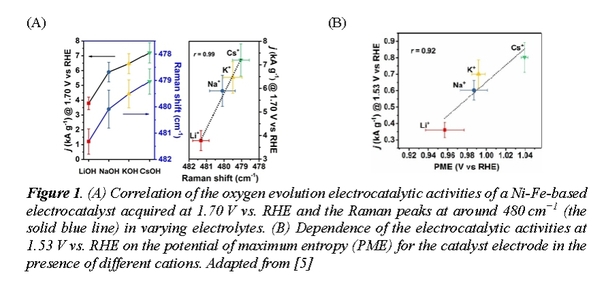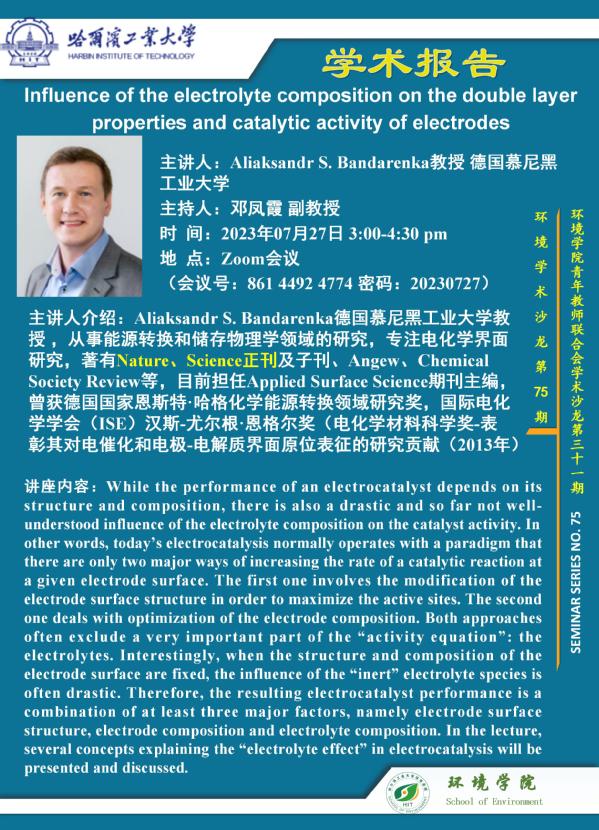德国慕尼黑工业大学Aliaksandr S. Bandarenka教授将于2023年7月6号、7月13号、7月27号与哈尔滨工业大学师生进行系列学术交流,本期将开展的主题是“Influence of the electrolyte composition on the double layer properties and catalytic activity of electrodes”,欢迎感兴趣的师生参加线上学术报告会。
Aliaksandr S. Bandarenka教授介绍:Aliaksandr S. Bandarenka德国慕尼黑工业大学教授 ,从事能源转换和储存物理学领域的研究,专注电化学界面研究,著有Nature、Science正刊及子刊、Angew、Chemical Society Review等,目前担任Applied Surface Science期刊主编,曾获德国国家恩斯特·哈格化学能源转换领域研究奖,国际电化学学会(ISE)汉斯-尤尔根·恩格尔奖(电化学材料科学奖-表彰其对电催化和电极-电解质界面原位表征的研究贡献(2013年))
讲座内容介绍:While the performance of an electrocatalyst depends on its structure and composition, there is also a drastic and so far not well-understood influence of the electrolyte composition on the catalyst activity. In other words, today’s electrocatalysis normally operates with a paradigm that there are only two major ways of increasing the rate of a catalytic reaction at a given electrode surface. The first one involves the modification of the electrode surface structure in order to maximize the active sites. The second one deals with optimization of the electrode composition. Both approaches often exclude a very important part of the “activity equation”: the electrolytes. Interestingly, when the structure and composition of the electrode surface are fixed, the influence of the “inert” electrolyte species is often drastic. Therefore, the resulting electrocatalyst performance is a combination of at least three major factors, namely electrode surface structure, electrode composition and electrolyte composition. In the lecture, several concepts explaining the “electrolyte effect” in electrocatalysis will be presented and discussed.





